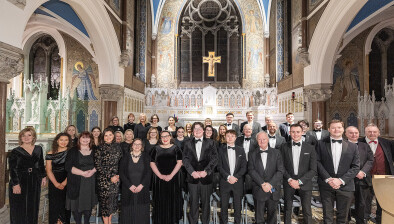NI High Court: Department of Justice erred in denying compensation to Gerry Adams over improper internment in 1973

Northern Ireland’s High Court has rejected a decision of the Department of Justice (DoJ) to refuse compensation for miscarriage of justice where the applicant, Gerry Adams, was improperly interned in 1973.

About this case:
- Citation:[2023] NIKB 53
- Judgment:
- Court:NI High Court
- Judge:Judge Adrian Colton QC
The applicant challenged the 2021 DoJ decision which found that Adams was not eligible for compensation for miscarriage of justice under section 133 of the Criminal Justice Act 1988 due to an alleged lack of “fresh” evidence.
Background
In 1975, the applicant was convicted of offences of attempting to escape from detention. In 2020, those convictions were quashed by the Supreme Court on an appeal out of time, R v Adams [2020] UKSC 19.
At the time, his detention was based on a 1973 interim custody order (ICO), under Article 4 of the Detention of Terrorists (Northern Ireland) Order 1972, commonly referred to as “internment without trial”.
Over four decades after his convictions, the applicant sought and was granted an extension of time within which to appeal.
The appeal argued that the ICO had to be made by the Secretary of State, who had to personally consider the case of the person whose detention was being sought. The applicant argued that this condition precedent was not established in evidence at the applicant’s trial, and his convictions were, accordingly, unsafe.
However, a document from 1974 entitled “Legality of ICOs” claimed that “the Attorney General is prepared to rely on the presumption of law that any instrument which appears on the face to have been properly executed (as these ICOs do) must be assumed to comply with any necessary prior procedures”.
On this basis, the prosecution proceeded against the applicant. Further, the Court of Appeal dismissed the applicant’s appeal in R v Adams [2018] NICA 8. The court was satisfied that the ICO could have been made by an appropriate person on behalf of the Secretary of State, including a minister.
Application for compensation
When his convictions were reversed in 2020, the minister of justice was advised that the applicant sought compensation for miscarriage of justice under section 133. In 2021, the DoJ confirmed its view that compensation should be refused.
The issue was whether this conviction had been quashed on the ground that a new or newly discovered fact showed beyond reasonable doubt there had been a miscarriage of justice.
The question of whether there is a right to compensation is also determined by the Secretary of State.
Miscarriage of justice
What amounts to a miscarriage of justice was established in this context by the Supreme Court in Re McCartney and MacDermott’s Applications [2012] AC 47. The court identified four categories of cases to be considered in dealing with the concept of miscarriage of justice:
- where fresh evidence shows clearly that the defendant is innocent of the crime of which he has been convicted;
- where fresh evidence is such that, had it been available at the time of the trial, no reasonable jury could properly have convicted the defendant;
- where fresh evidence renders the conviction unsafe in that, had it been available at the time of the trial, a reasonable jury might or might not have convicted the defendant; and
- where something has gone seriously wrong in the investigation of the offence or the conduct of the trial, resulting in the conviction of someone who should not have been convicted.
The Supreme Court confirmed that only categories 1 and 2 were to be included in the concept of miscarriage of justice.
Here, importantly, the Supreme Court judgment reversed the applicant’s conviction. Therefore, he could meet the test for a s.133 miscarriage of justice, if he could resolve the interpretation issue around the words “a new or newly discovered fact”.
The real issue, therefore, was whether the respondent was correct in its contention that the Supreme Court decision was “a legal ruling on facts which had been known all along”. In other words, the conviction was not reversed “on the grounds of a new or newly discovered fact”.
Consideration
The court, following Hallam [2020] AC 279, noted that the applicant bears the onus of proof to establish that he meets the statutory requirements.
The newly-discovered fact relied on, namely that the ICO had not been personally considered by the Secretary of State, was clearly a fact of an evidential nature. It only became apparent when the note for the record was disclosed. It was not known to the defence or the trial judge at the time of the applicant’s conviction.
Therefore, this fact was not known at the trial. If it had been known, but disregarded by the trial court, then the Supreme Court decision would not have met the s.133 test.
This, however, was not a case where the Supreme Court was correcting some error of law by the court which convicted the applicant. What occurred here was the discovery of an evidential based piece of factual information, the AG’s note, which, if it had been known at the time of the trial, and had the law been properly applied at that time, would have demonstrated that there was no case against the applicant.
Because of this missing information, the trial judge and the defence were unaware of the true factual situation. The fact that the Secretary of State did not personally consider the applicant’s case meant that the applicant’s conviction was reversed “in circumstances where” that fact showed beyond reasonable doubt that there had been a miscarriage of justice.
Conclusion
The court concluded that the applicant’s case on appeal involved a newly discovered fact: that there had been no personal consideration of his 1973 ICO. That was not a fact known to the applicant or to the court at the time of his trial.
For s.133 purposes, the applicant was convicted of a criminal offence, and his conviction was reversed where a newly discovered fact showed beyond reasonable doubt that there had been a miscarriage of justice.
The court was therefore satisfied that the applicant met the test for compensation under s.133 of the Criminal Justice Act 1988, and made the following orders:
- an order of certiorari quashing the decision of the DoJ which concluded that the applicant was not eligible for compensation for a miscarriage of justice under s.133 of the 1988 Act;
- a declaration that the DoJ decision was unlawful, ultra vires and of no force or effect; and
- an order that the compensation application be reconsidered and redetermined in accordance with law.








